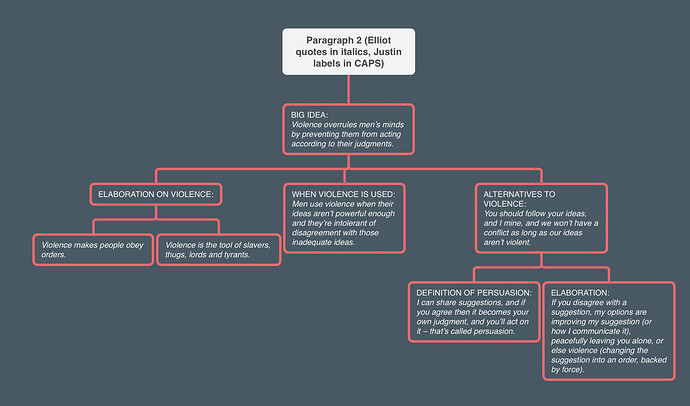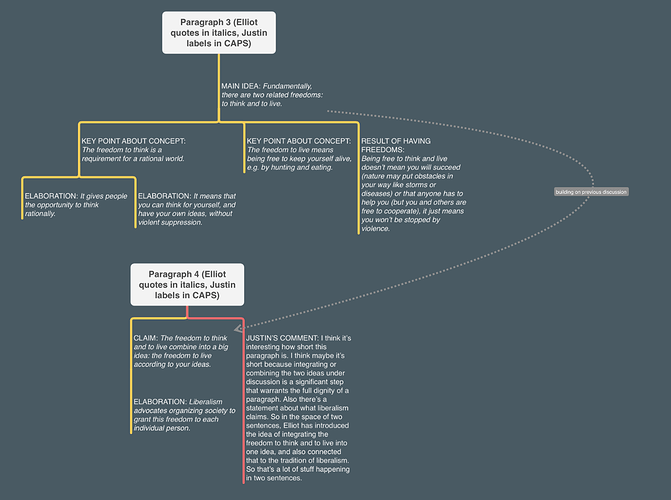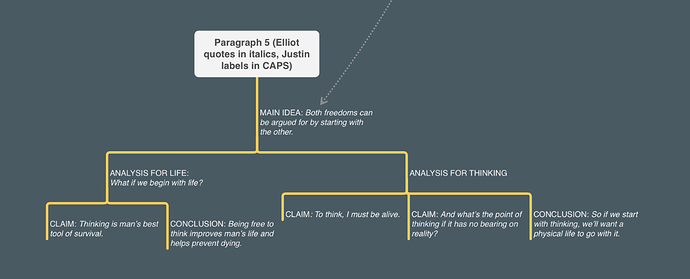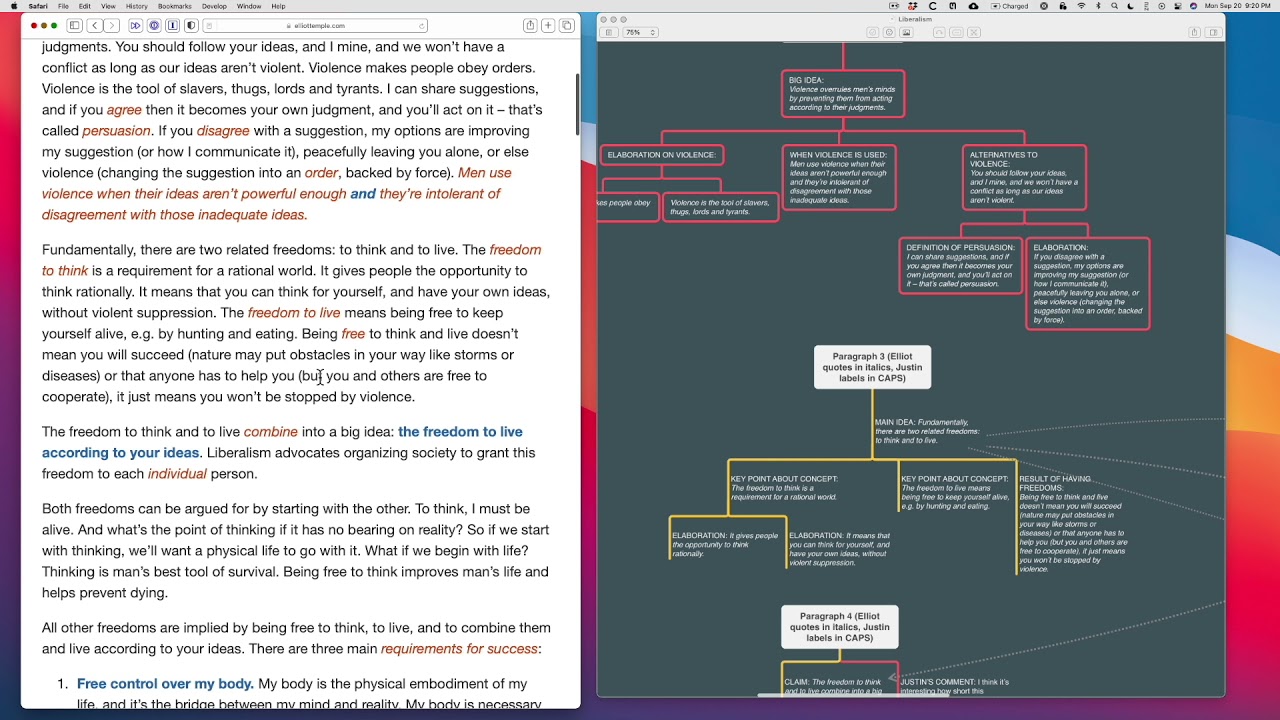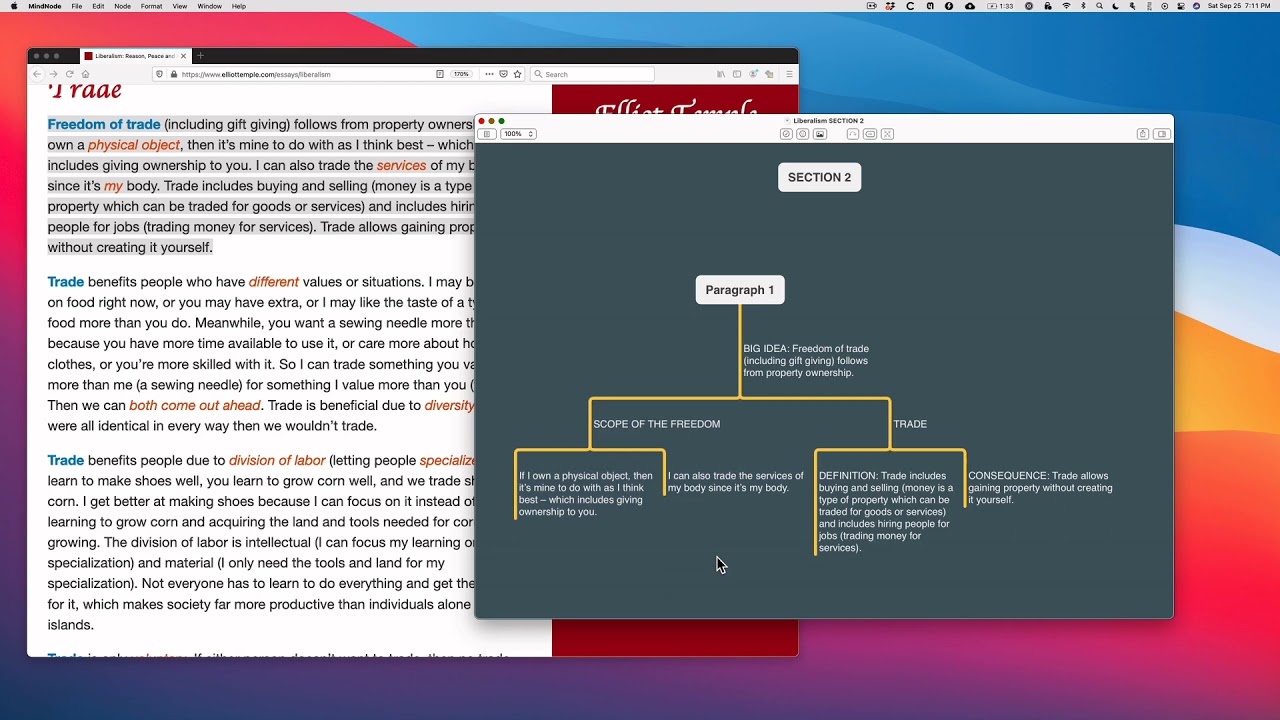My wild guess is that it would be like unbounded but I’m not actually sure. I checked the “About” post for the Elliot Temple category but it didn’t say much. So don’t worry about having posted to the wrong place, since it’s not actually obvious to one of the admins ![]() Worst case is we can move it.
Worst case is we can move it.
btw i was a bit hesitant to share video initially cuz of that part. i was worried about saying something foolish about slavery
Criticizing or commenting on the published work of authors or content creators is partially asymmetric. They are voluntarily putting themselves out there in a way people leaving a comment are not. This is difficult to capture in formal rules, but a rough idea is that creators should not escalate – which roughly means don’t respond with harsher criticism than a commenter used. (It’s fine if you ask first and they want something. Asking when unsure is a method others can use too. You can also often make reasonable guesses about what is OK with people, without asking, if know them and are familiar with a lot of their discussion history.)
Also, if saying something is within normal social rules and it’s not mean then it’s generally fine. In other words, as usual, convention + no major problem = OK. This relates to the attitude of starting with convention and making modifications to fix (significant) problems, which is pretty different than trying to make up an ideal system from scratch.
Yes!
This seems like a pattern I’ve started to notice elsewhere (there are some other work-related examples I can’t mention yet). One example that immediately comes to mind is transmitting data via waves (sound, EM, voltage, etc) – e.g. a square wave requires an infinite max frequency (and has infinite bandwidth). Basically that’s because you need to add an infinite number of sine waves together to make a square wave. Square waves sound good (we use them in computers a lot) but trying to make a perfect square wave is futile (and making a system that expects a clean square wave, without enough error correciton built in, will fail). There’s a natural limit to how that works in the universe, and trying to get around it produces unpredictable/garbage results.
It’s maybe a bit of leap to say it’s the same pattern, but what sticks out for me is the idea of people trying to control something without understanding how to work with reality. Obvs we have lots of knowledge about data-transmission and waves, so there’s no big issue wrt that, but there are lots of other cases where people think that X should be possible so they try to make it happen and, even if it seems to work for a while, it’s unstable and when it fails they won’t understand why. (UBI might be another example, and mb pure direct democracy in large populations)
I thought that bit was actually pretty strong and effective (argument wise). I was thinking particularly about slaves in the 1800s or so, and my guess is that many of them would take freedom over bedding/housing if they were given the choice. There might be exceptions (e.g. if someone owned slaves but treated them extraordinarily well), but my intuition is that many would choose freedom.
This reminds me of 2 sections of this vid (covering homeless veterans in LA): “Veterans of War” and “A House, Not A Home”
The point is made that they (the vets) are choosing freedom over the state-sponsored housing (two examples are mentioned). It also stood out to me near the end of that first section when the interviewer says:
Sounds like you like America, what it represents …
And the vet cuts him off
No, no, love; love America
https://www.elliottemple.com/essays/liberalism
And what’s the point of thinking if it has no bearing on reality?
I made a mental connection here to “locked-in syndrome”
https://www.elliottemple.com/essays/liberalism
hmm legibility isn’t great, will try different format
Paragraph 6 (Elliot quotes in italics, Justin labels in CAPS).pdf (36.3 KB)
ok done, added PDF link
I was trying to go through Elliot’s essay on Liberalism carefully, make trees, make videos with some comments. I’m now wondering whether that was a good idea. I’m not sure.
I think the essay is good, and I think good things are worthy of careful scrutiny and analysis, so that’s not the issue. I am having difficulty self-evaluating whether what I’ve been doing is worthwhile, so maybe I should stop (since I can’t self-evaluate, which is a bad sign). Thoughts welcome (from anybody).
I did get useful feedback about the audio levels in my videos (bit too low) and plan to revise production of my videos going forward in response to that.
EDIT: Clarification: I think part of the goal here was to make some effort engaging with some CF material in some kinda substantive way, and part of the goal was to practice making videos. So I guess what I’m doing is okay for those goals?
This video has some audio issues (mainly a weird rumble that got picked up and caused silence removal to work less well)
